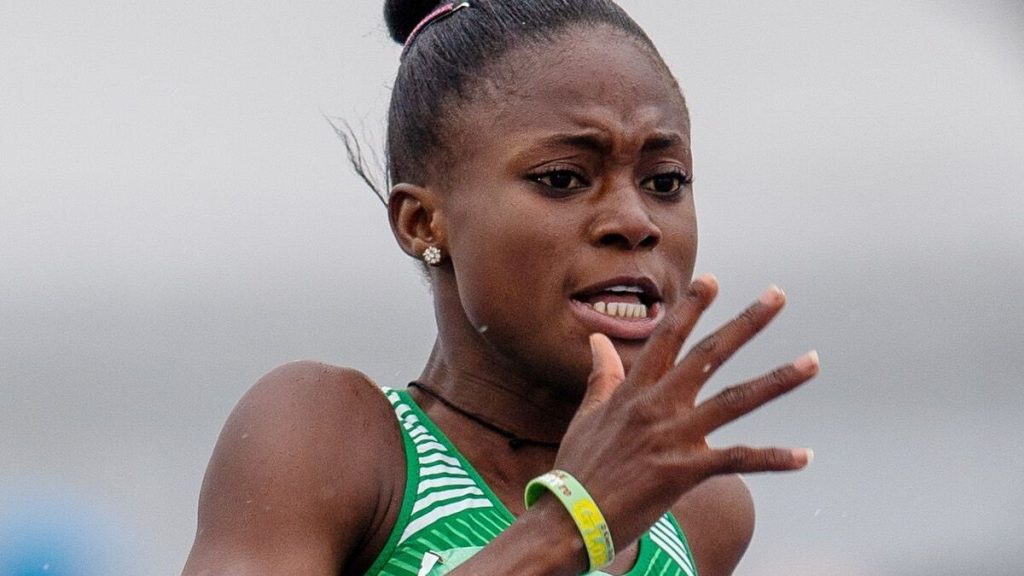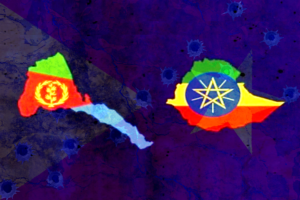Nigeria loses another star athlete

Administrative malpractice, Olympic exclusions, and a system in crisis. Favour Ofili decided to represent Türkiye after years of disagreements with her home country’s Athletics Federation. Her change of flag stirs up the debate over sports management in Africa and rekindles the exodus of talent.
“I am starting a new chapter representing Türkiye.” With these words to her more than 40,000 followers on Instagram, Ofili, one of the most promising figures in African athletics, made her change of sporting allegiance official. The 22-year-old athlete has decided to leave Nigeria after prolonged disputes with the Nigerian Athletics Federation and the Nigerian Olympic Committee, citing administrative errors that, as reported by her, cost her participation in two consecutive editions of the Olympic Games: Tokyo 2020 and Paris 2024.
The announcement was made by the athlete herself on social media, specifically with a carousel of motley photos in which she recaps her 2025 and takes the opportunity to share a heartfelt message in which she regrets her departure from the national team. She says she feels hopeful about what lies ahead, though. “I am proud to have represented Nigeria so successfully for so many years,” she wrote. She has won six gold medals, two silver medals and two bronze medals in worldwide competitions, establishing herself as one of the greats.
However, her upward trajectory has been marked by episodes that have undermined her confidence in her nation’s sporting institutions. In Tokyo, Ofili was one of the athletes excluded for non-compliance with out-of-competition doping controls. And in the French capital, she was blacklisted for the 100-meter dash, a decision that, she tearfully confessed during the event, left her devastated.
Her medal cabinet already includes a silver medal in the 400 meters at the 2019 All-Africa Games. She also won silver in the 200 meters at the 2022 Commonwealth Games, and was a bronze medalist in the 200 meters at the 2021 World U-20 Championships. The Port Harcourt native is also the African indoor record holder in the 200 meters and holds a national record (also in the U-20 category) in the same distance with a time of 21.96 seconds, making her the first Nigerian woman in history (and the second African woman) to break the 22-second barrier.
According to the former Louisiana State University prospect in the NCAA, where she also broke records, she has not received compensation, clear explanations, or apologies on either occasion. “Everyone remains in their positions,” she denounced. “They said they had paid me compensation. I haven’t received anything from anyone, not even an apology.”
AFN President Tonobok Okowa confirmed to ESPN that both World Athletics and the athlete herself notified of the change of nationality. Although, he rejected accusations of negligence on the part of the organisation and attributed Ofili’s decision to strictly economic reasons. “It’s all about money. She and her coach are trying to make money. I don’t see anything wrong with that, but she should stop using these reasons as an excuse,” he stated.
Okowa insisted that, in the case of the Japanese Olympics’, the responsibility lies with the athlete herself for not having completed her out-of-tournament doping tests. “At that time, I wasn’t even president; we took office two weeks later,” he pointed out. Regarding her exclusion in last year’s celebration in France, he maintained that her name was initially registered and that he does not know at what point in the process it was omitted.
Yet the youngster categorically denied that the change of nationality was due to financial reasons, although various media outlets have reported that Türkiye offered her around $500,000 (€429,000) to represent the country. “This change comes from my heart, not from financial motives,” she said.
In compliance with World Athletics regulations, athletes who wish to change nationality must wait three years from their last participation with their previous country, unless they are granted an exemption for ‘exceptional circumstances.’ In Ofili’s case, administrative negligence could serve as grounds for requesting such an exemption. For now, the athlete has announced that she will not compete in the upcoming World Athletics Championships in Tokyo while awaiting the decision of the Nationality Review Panel.
“Although that means not participating in this year’s championships in Japan, I am truly grateful to have found a new home,” the young runner wrote in her public statement. The website of the governing body headed by Sebastian Coe still lists her as a Nigerian athlete, but internal sources have made public the receipt of four transfer requests from the Turkish federation, presumably including the talented sprinter.
The reaction on social media was immediate. The Nigeria Stories account, with more than 650,000 followers, posted the news on social network X, generating a wave of comments, with more than 2,200 retweets and 1.5 million views in less than 24 hours. While some lamented the departure of one of the jewels of national athletics, others lashed out at the institutions. “A crazy situation,” “How did they let this happen?,” “It’s a tragedy for Nigerian sport,” were some of the most repeated messages. On the other hand, others supported her decision, “Run for your life and for your children’s lives,” posted user ‘BommingBag.’
Ofili is not the first Nigerian star to change flags. Over the last few decades, several athletes have made similar decisions: Francis Obikwelu (Portugal), Gloria Alozie (Spain), Florence Ekpo-Umoh (Germany), Salwa Eid Naser (Bahrain) and Femi Ogunode (Qatar), among others. Many of them found greater sporting and administrative stability in their new destinations, reflecting a trend that is of serious concern to the continent’s sport.
On the other hand, Nigeria is preparing to host the African High Games in April 2027. The infrastructure is already in place, and during the closing ceremony of the last Games, Algeria officially handed over the torch to the host country. “We contacted Nigeria several months ago, and their strong commitment deserves to be recognised,” recently admitted Mustapha Berraf, president of the Association of National Olympic Committees of Africa.
This organisational commitment contrasts with the sense of disorganisation conveyed by the 22-year-old professional’s words and the experiences of other athletes. The question that remains is whether the Nigerian authorities will manage to rebuild the confidence of their talented sportsmen and women or whether the steady migration will continue to erode the nation’s competitive potential. For now, the young woman is preparing for a new stage in her career. A stage marked by the pain of loss, but also by the hope of a more prosperous future.






